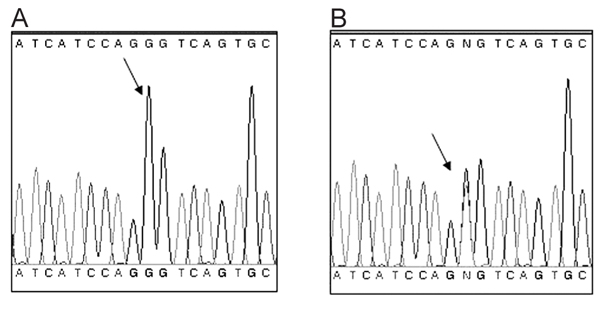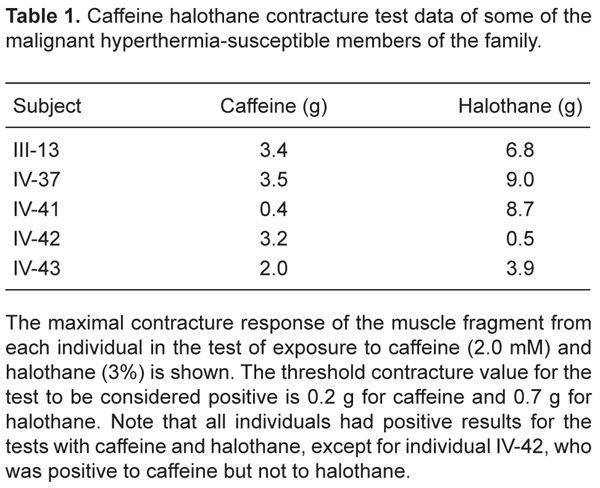Malignant hyperthermia (MH) is a pharmacogenetic disease triggered in susceptible individuals by the administration of volatile halogenated anesthetics and/or succinylcholine, leading to the development of a hypermetabolic crisis, which is caused by abnormal release of Ca2+ from the sarcoplasmic reticulum, through the Ca2+ release channel ryanodine receptor 1 (RyR1). Mutations in the RYR1 gene are associated with MH in the majority of susceptible families. Genetic screening of a 5-generation Brazilian family with a history of MH-related deaths and a previous MH diagnosis by the caffeine halothane contracture test (CHCT) in some individuals was performed using restriction and sequencing analysis. A novel missense mutation, Gly4935Ser, was found in an important functional and conserved locus of this gene, the transmembrane region of RyR1. In this family, 2 MH-susceptible individuals previously diagnosed with CHCT carry this novel mutation and another 24 not previously diagnosed members also carry it. However, this same mutation was not found in another MH-susceptible individual whose CHCT was positive to the test with caffeine but not to the test with halothane. None of the 5 MH normal individuals of the family, previously diagnosed by CHCT, carry this mutation, nor do 100 controls from control Brazilian and USA populations. The Gly4932Ser variant is a candidate mutation for MH, based on its co-segregation with disease phenotype, absence among controls and its location within the protein.
Malignant hyperthermia; Mutation; Ryanodine receptor; Calcium channel





